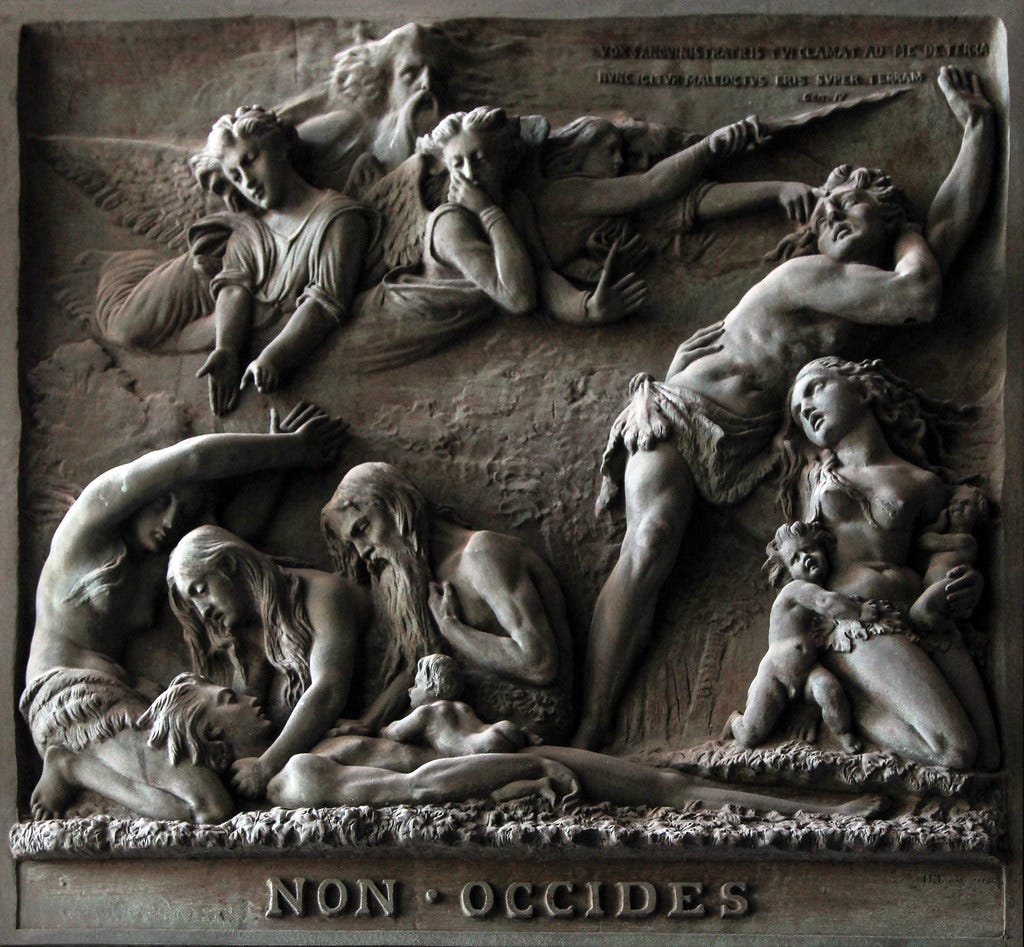Introduction
In 1989, British rock musician Chris Rea released an album of his songs, the title track being Road to Hell. The song is about a man who has strayed onto the motorway to Hell. This Gospel passage reminded me of Rea’s composition and its scriptural allusions:
On your journey cross the wilderness / From the desert to the well / You have strayed upon the motorway to hell
The road to Hell is paved with good intentions. People find themselves on that road when (with the best of intentions) they choose to ignore the plea for forgiveness in Jesus’ prayer (Luke 11:4):
Forgive us our sins, for we forgive everyone who does us wrong. (Good News Translation)
There is so much happening in the world around us - and, perhaps, in our own lives - that highlights the lack of the unconditional love that nurtures justice and peace.
The Gospel
Jesus said to his disciples: ‘If your virtue goes no deeper than that of the scribes and Pharisees, you will never get into the kingdom of heaven.
‘You have learnt how it was said to our ancestors: You must not kill; and if anyone does kill he must answer for it before the court. But I say this to you: anyone who is angry with his brother will answer for it before the court; if a man calls his brother “Fool” he will answer for it before the Sanhedrin; and if a man calls him “Renegade” he will answer for it in hell fire. So then, if you are bringing your offering to the altar and there remember that your brother has something against you, leave your offering there before the altar, go and be reconciled with your brother first, and then come back and present your offering. Come to terms with your opponent in good time while you are still on the way to the court with him, or he may hand you over to the judge and the judge to the officer, and you will be thrown into prison. I tell you solemnly, you will not get out till you have paid the last penny.’ (Matthew 5:20-26)
The Enquiry
See
Consider the context of this scene in Matthew’s Gospel. What is the passage about and how does it relate to Jesus’ mission?
Fr Albert Nolan wrote in Jesus Before Christianity (1977): “If love is understood as solidarity, then love is not incompatible with indignation and anger. On the contrary, if one is genuinely concerned about people as people and painfully aware of their sufferings, one will of necessity be indignant and angry with any man who makes himself and others suffer” (p.64). What does his statement offer as an explanation for why Jesus addresses his disciples in this way?
What happens in the Gospel and afterwards because Jesus tells his disciples how to treat others?
Judge
What do you think about what Jesus tells his disciples? How realistic is he? Is being realistic relevant in considering who Jesus is and his mission?
What is at the heart of Jesus’ worldview?
How are you challenged by what Jesus says to his disciples?
Act
What do you want to change in the world to be in solidarity with Jesus?
What small action can you carry that will support Jesus and his mission?
Who can you involve in your action, when, where and how often?
Image Source: Fr Lawrence Lew OP (Creator), Detail from the doors of the church of La Madeleine in Paris, Flickr, CC BY-NC-ND 2.0


